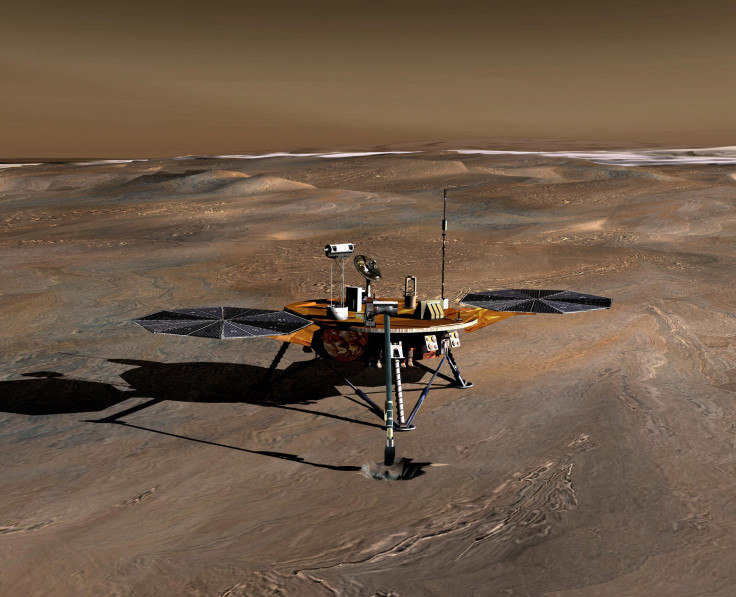Mars Soil Capable Of Growing Vegetables, Dutch Scientists Say

In an experiment testing how well crops can be grown in space, Dutch scientists have managed to harvest 10 crops, including tomatoes, peas, and rye, from soil similar to that on Mars.
The team from Wageningen University in the Netherlands said four of these—radishes, peas, rye and tomatoes—grown on dirt mixed on Earth to copy that of the red planet were found to contain “no dangerous levels” of heavy metals.
“These remarkable results are very promising,” said senior ecologist Wieger Wamelink, according to the Guardian.
“We can actually eat the radishes, peas, rye and tomatoes, and I am very curious what they will taste like,” he said.
Further tests are required to be conducted on the remaining six crops, including potatoes, in research that is being backed by a crowd-funding campaign.
https://t.co/2c6L9f4fVm can we grow food on #mars. Interesting short video
— MarsHumans (@MarsHumans) June 23, 2016
“The production of biomass on the Mars soil simulant was lower than on Earth control, but it was a minor difference and caused by one of the trays that showed less growth,” international scientific publisher Science Alert quoted the lead researcher as saying.
For the experiment, the ‘Mars’ soil came from a volcano in Hawaii. It was then mixed with fresh cut grass in shallow trays, which made it easier to water the crops. A control tray contained regular Earth potting compost.
NASA and other international space agencies are hope to send humans to live on Mars for long periods by the 2030s. Projects to establish colonies on Mars are also being pursued by billionaire Elon Musk and Dutch company Mars One.
In such a case, Mars settlers would have to take their first food supplies with them and then plant crops in order to survive.
Financial Express Astronauts really could farm food on Mars: Vegetables grown in 'Martian' soil found to be safe to… https://t.co/rP9yKdJfl6
— Shanna (@ShannaIDK) June 24, 2016
The researchers also made attempts to grow the same 10 crops—tomato, rye, radish, pea, leek, spinach, garden rocket, cress, quinoa, and chives — in soil that mimicked that of the Moon. These, however, were about half as successful as Mars crops, with spinach in particular struggling in the lunar environment.
In the 2015 film, "The Martian," stranded astronaut Mark Watney (played by Matt Damon) was forced to use human waste to "seed" the sterile soil on the red planet with bacteria and to fertilize his crops, particularly potatoes.
© Copyright IBTimes 2024. All rights reserved.












